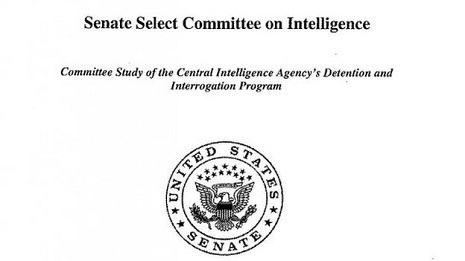A procedural vote Sunday cleared the way for the chamber to approve a House-passed measure known as the U.S.A. Freedom Act as soon as Tuesday. Broad support for the bill—it advanced on a 77-17 vote—reflects Washington’s tectonic shift toward boosting privacy and curbing government surveillance, a marked adjustment following former NSA contractor Edward Snowden’s 2013 leaks about secretive data collection practices.
The Freedom Act would require the NSA and Federal Bureau of Investigation to obtain phone records for most counterterrorism investigations and other probes on a case-by-case basis from telecommunications companies. This would end the nine-year-old practice underpinned by Section 215 of the USA Patriot Act, which allowed the NSA to seize and store the telephone records of millions of Americans, regardless of any person’s background or behavior.
“It would probably be the first time since 1978 that Congress has significantly narrowed the government’s surveillance authority or made structural changes to the legal framework that governs foreign intelligence surveillance,” said Jameel Jaffer, deputy legal director of the American Civil Liberties Union, said of the Freedom Act.
Section 215 of the Patriot Act expired at midnight Sunday, meaning lawmakers were under pressure to come up with replacement or risk having the program expire entirely. They were unable to, but the lapse is only expected to be brief.
The Patriot Act, passed six weeks after the Sept. 11, 2001, terrorist attacks, gave the intelligence community broad new surveillance powers in an effort to thwart another catastrophe. The government received new authorities to quickly seize business and banking records, monitor phone calls, and follow other leads that officials argued were necessary to protect the country. The measure enjoyed broad backing, passing the Senate 98-1.
But support for the law has waned as Washington has changed. Just 26 of the 98 senators who voted for the Patriot Act in 2001 are still in office and most of them voted Sunday night to advance the House bill. The Patriot Act’s support in Congress has particularly eroded since Mr. Snowden revealed details of government spying, as some of which relied on the Patriot Act for legal underpinning.
The change is evident in the House too, which just four years ago, reauthorized the bulk collection powers with a 250-153 vote. On May 13 of this year, the chamber voted 338-88 to end the powers.
The U.S. government now enters an uncertain period of counterterrorism, as Americans remain split on how to balance calls for both national security and civil liberties.
Supporters of the Freedom Act and top U.S. intelligence officials have said the measure wouldn`t impinge on the government’s access to vital telephone records. The NSA would still be able to access telephone records, but it would have to obtain the information on a case-by-case basis from telephone companies. Critics of the change who supported the original bulk telephone program said telephone companies could begin destroying telephone records to block government access.
The White House has said it would notify Congress if companies begin using such an approach, and might possibly call for new curbs. If the Freedom Act is passed, phone companies and the NSA would have 180 days to phase in the new system, meaning the bulk data collection program could exist until around the beginning of 2016.
The bulk telephone records program is just one surveillance tool created after the 2001 terrorist attacks. Many have remained secret, but recent disclosures—including by Mr. Snowden—have revealed that the government has swept up electronic communications records, cellphone location data, and a variety of other details.
The bulk telephone program is likely the first legislative casualty of Mr. Snowden’s leaks, a development that has worried some of the program’s supporters. Some of the telephone program’s original architects have said the government bungled the public relations fiasco that followed Snowden’s leaks by failing to properly explain the data’s value, but they have warned that the phone records are too important to be lost.
“If you lose that capability and we get hit with an attack…we didn’t do the American people right,” said Gen. (Ret.) Keith Alexander, who was running the NSA at the time of the Snowden leaks. Gen. Alexander made the comments at a recent Washington event.
While the Freedom Act marks a legislative change, the Snowden leaks have led to a number of other changes.
Responding to the public backlash two years ago, the White House vowed it would be more transparent about the scope of intelligence gathering, and it has declassified numerous executive orders and legal opinions tied to government surveillance.
Similarly, technology companies reached a settlement with the U.S. government that allowed firms to disclose more about the national security requests for business or personal information. And officials have said they quietly halted the practice of spying on foreign leaders of friendly allies, though many allies remain skeptical about whether the Obama administration has truly ceased some of these spy programs.
The end of the bulk telephone collection program doesn`t mean the end of debates about national security and privacy.
Technology companies are currently designing ways to bolster encryption software to prevent the government or hackers from intercepting text messages, something that law-enforcement officials have said could lead to a dangerous precedent. And Congress is debating how to rework cybersecurity laws to slow the onslaught of these attacks.
More about:
















































